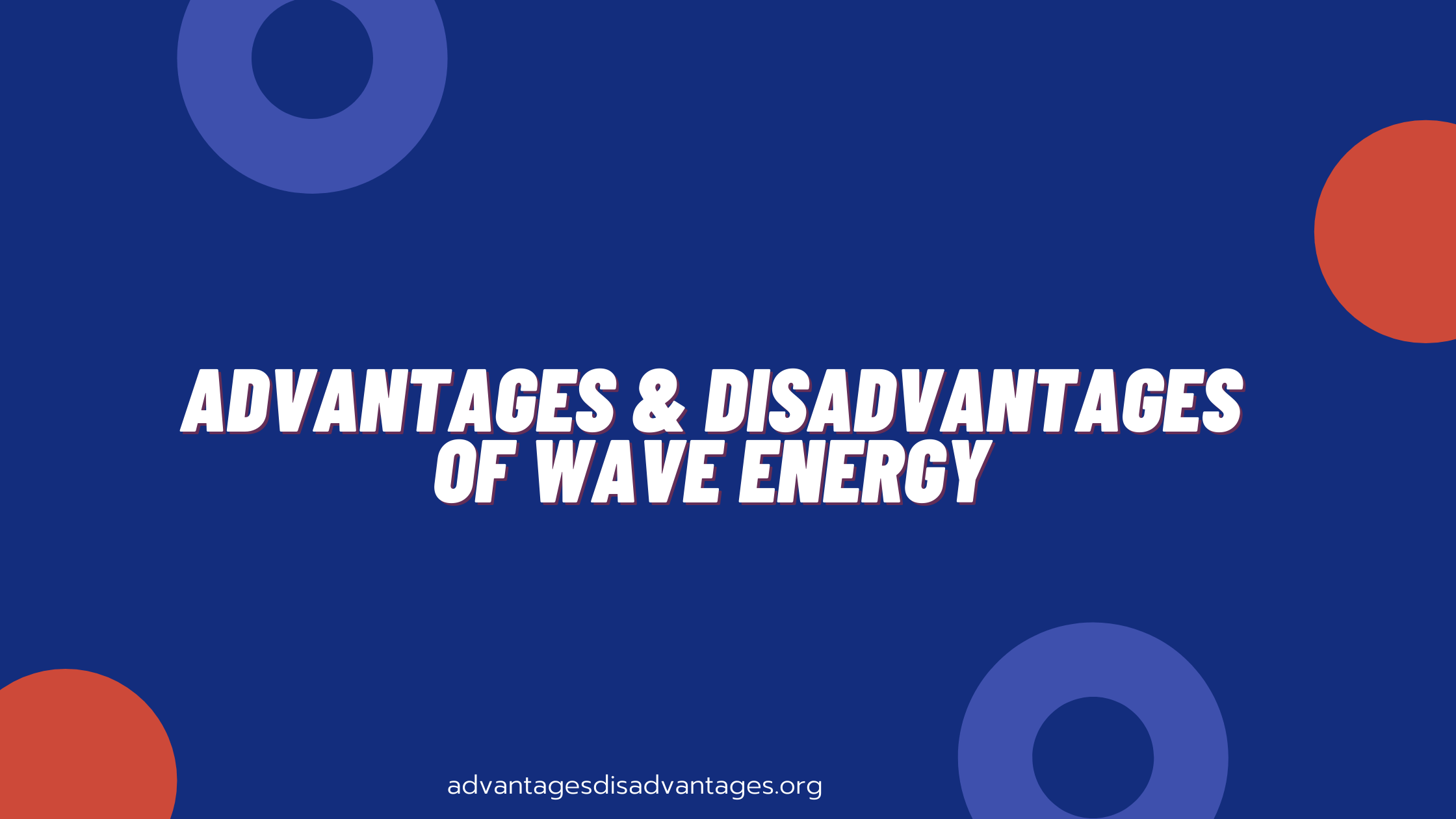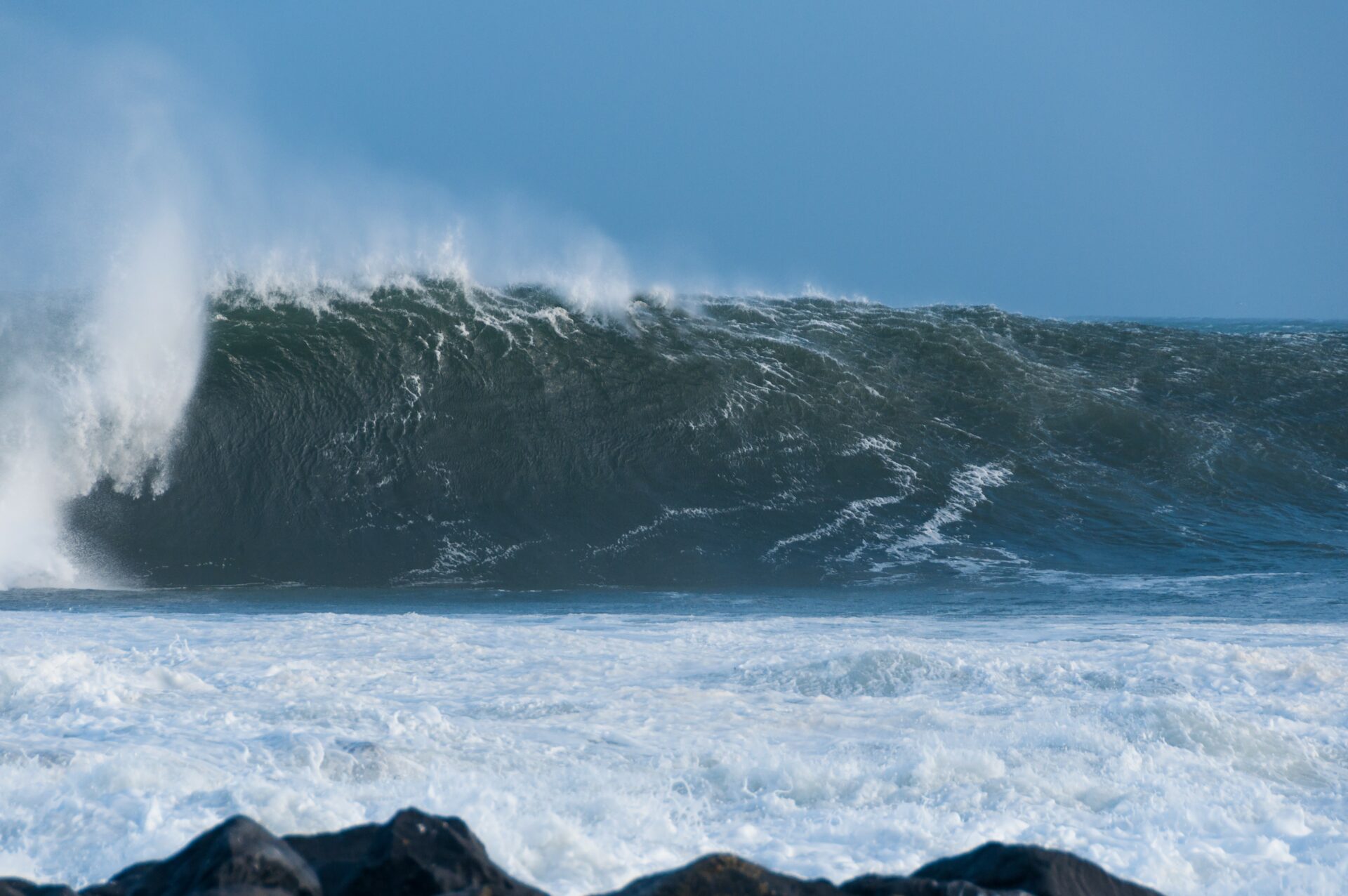Unlocking The Power Of The Ocean: Why Wave Energy Advantages Are Transforming The Future
Wave energy advantages are revolutionizing the renewable energy landscape, offering a sustainable and powerful solution to meet the world's growing energy demands. As the world shifts toward cleaner and more sustainable energy sources, wave energy stands out as a promising contender. Unlike solar or wind energy, wave energy harnesses the natural motion of ocean waves, providing a consistent and reliable energy source. This renewable energy form has the potential to reduce greenhouse gas emissions, combat climate change, and provide energy security for coastal communities worldwide.
With over 70% of the Earth's surface covered by water, the oceans hold immense untapped potential. Wave energy systems convert the kinetic energy of ocean waves into electricity, creating a renewable energy source that operates day and night, regardless of weather conditions. This makes wave energy a highly reliable and predictable option compared to other renewable sources. Moreover, wave energy systems can be deployed in various locations, from nearshore installations to deep ocean setups, offering flexibility in energy generation.
As global interest in renewable energy grows, understanding the benefits of wave energy becomes increasingly important. From its environmental advantages to its potential to boost local economies, wave energy offers a range of benefits that make it a key player in the transition to a greener future. In this article, we’ll explore the key advantages of wave energy, address common questions, and examine why this renewable energy source is gaining traction worldwide.
Read also:Discovering The Journey Of Zeo Perry A Rising Star Worth Watching
Table of Contents
- What Are the Main Advantages of Wave Energy?
- How Does Wave Energy Compare to Other Renewables?
- Is Wave Energy a Viable Solution for Coastal Communities?
- What Are the Environmental Benefits of Wave Energy?
- How Does Wave Energy Contribute to Energy Security?
- The Economic Impact of Wave Energy Advantages
- Challenges and Solutions in Wave Energy Development
- How Can Wave Energy Be Harnessed Effectively?
- The Future of Wave Energy Advantages
- Why Should We Invest in Wave Energy Now?
What Are the Main Advantages of Wave Energy?
Wave energy offers a range of benefits that make it a standout renewable energy source. Here are the key advantages:
- Predictability: Unlike solar or wind energy, which depend on weather conditions, wave energy is highly predictable. Ocean waves are consistent and follow regular patterns, allowing for accurate energy generation forecasts.
- High Energy Density: Waves carry a significant amount of energy, making them an efficient source of power. This high energy density means that wave energy systems can generate substantial electricity even from small installations.
- Environmental Friendliness: Wave energy systems produce no greenhouse gas emissions during operation, making them a clean energy solution. They also have minimal impact on marine ecosystems when designed and deployed responsibly.
These wave energy advantages position it as a reliable and sustainable energy source, capable of complementing other renewable technologies in the global energy mix.
How Does Wave Energy Compare to Other Renewables?
When evaluating renewable energy sources, it’s important to consider how wave energy stacks up against solar, wind, and hydropower. Here’s a breakdown:
Is Wave Energy More Reliable Than Solar and Wind?
Wave energy is often considered more reliable than solar and wind energy due to its predictability. While solar panels only generate electricity during daylight hours and wind turbines require consistent wind speeds, wave energy systems can operate continuously. This reliability makes wave energy advantages particularly appealing for regions with access to coastlines.
What Are the Limitations of Other Renewables?
Solar and wind energy systems face challenges such as intermittency, land use requirements, and environmental impacts. For instance, large solar farms require significant land areas, and wind turbines can pose risks to birds and bats. In contrast, wave energy systems have a smaller land footprint and can be installed offshore, minimizing their impact on terrestrial ecosystems.
Is Wave Energy a Viable Solution for Coastal Communities?
Coastal communities around the world can greatly benefit from wave energy advantages. These communities often face energy challenges due to their remote locations and limited access to traditional power grids. Wave energy offers a localized solution that can reduce dependence on imported fuels and enhance energy independence.
Read also:Exploring The Life And Achievements Of Aneesha Joshi
How Does Wave Energy Support Local Economies?
By investing in wave energy infrastructure, coastal regions can create jobs in manufacturing, installation, and maintenance. This economic boost can revitalize local economies and provide long-term benefits for residents.
What Are the Environmental Benefits of Wave Energy?
One of the most significant wave energy advantages is its positive environmental impact. Unlike fossil fuels, wave energy systems produce no air pollution or carbon emissions. Additionally, they have minimal impact on marine life when designed with sustainability in mind.
How Does Wave Energy Reduce Carbon Footprints?
By replacing fossil fuel-based energy sources with wave energy, countries can significantly reduce their carbon emissions. This transition is crucial for meeting global climate goals and mitigating the effects of climate change.
How Does Wave Energy Contribute to Energy Security?
Energy security is a growing concern for many nations. Wave energy offers a decentralized energy source that can reduce reliance on imported fuels and enhance energy independence. This is particularly important for island nations and coastal regions.
The Economic Impact of Wave Energy Advantages
Wave energy has the potential to create a thriving new industry, generating jobs and driving innovation. From research and development to deployment and maintenance, the wave energy sector can stimulate economic growth in multiple ways.
What Are the Cost Considerations for Wave Energy?
While the initial costs of wave energy systems can be high, advancements in technology are driving down expenses. As the industry matures, wave energy is expected to become more cost-competitive with other renewable sources.
Challenges and Solutions in Wave Energy Development
Despite its advantages, wave energy faces several challenges, including technological limitations and high upfront costs. However, ongoing research and innovation are addressing these issues, paving the way for wider adoption.
What Are the Technological Hurdles in Wave Energy?
Developing durable and efficient wave energy converters is a key challenge. Engineers are working on designs that can withstand harsh ocean conditions while maximizing energy output.
How Can Wave Energy Be Harnessed Effectively?
Effective harnessing of wave energy requires strategic planning and investment in infrastructure. Governments and private companies must collaborate to develop scalable and sustainable solutions.
The Future of Wave Energy Advantages
As technology advances and awareness of wave energy advantages grows, this renewable energy source is poised to play a larger role in the global energy landscape. Continued investment and innovation will be key to unlocking its full potential.
Why Should We Invest in Wave Energy Now?
Investing in wave energy today can position countries and companies at the forefront of a rapidly growing industry. By leveraging wave energy advantages, we can create a cleaner, more sustainable future for generations to come.
Why Hawaii Is Considered One Of The Most Expensive Places To Live In The U.S.
Tattoo Locations: A Comprehensive Guide To Choosing The Perfect Spot
How Many Calories Are In A Slice Of Bread?

Advantages and Disadvantages of Wave Energy Pros Cons

Wave Energy Advantages and Disadvantages (2023 Update) Linquip